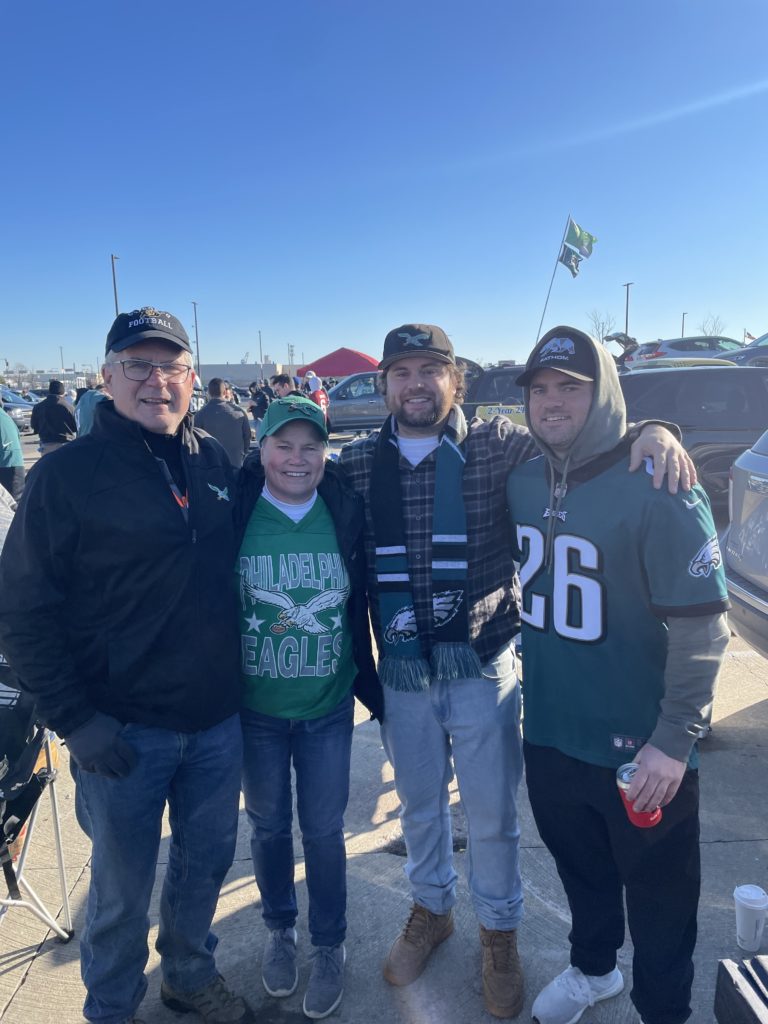

Moorestown resident Steve Emerson felt something was off in 2005.
“My writing was getting smaller, my handwriting,” Emerson said. “People noticed that I wasn’t swinging my arms when I walked … It was almost sort of a robotic walk.”
Two years later, Emerson was diagnosed with Parkinson’s disease; he was 50 years old.
“They ran some tests but they could tell just visually that it was Parkinson’s,” Emerson recalled. “There’s no brain scan or CAT scan or MRI that can show you Parkinson’s.”
“That’s right on the cusp of what they consider to be early onset,” he added. “Most folks think of Parkinson’s as being an older person’s disease, which it is, predominantly. But I have what they call early onset.”
According to www.parkinson.org, Parkinson’s is a neurodegenerative brain disorder that affects predominantly dopamine-producing neurons in a specific area of the brain called substantia nigra.
“There’s nothing I can’t do that I could do before, but everything’s harder and slower and that’s the way Parkinson’s has hit me,” Emerson explained. “If you line up 100 people with Parkinson’s, you’re going to hear 100 different stories about how it affects (them).”
Through his work with the Davis Phinney Foundation for Parkinson’s, Emerson helps others.
“When someone has a friend or a relative or a loved one who’s diagnosed … if they’re up for it, I’ll sit with them, have coffee and talk about my experience, because when you first get diagnosed it’s scary,” Emerson noted.
Emerson’s wife Mary and sons Luke and Matthew have helped.

“It’s a tough disease to go through; I can’t imagine being alone and going through it, and a lot of people do,” Emerson said. “Mary and the boys … they’re protective, so if we’re out somewhere, they keep an eye on me.”
Emerson is up front with others about his diagnosis.
“That’s something that people really wrestle with, and I told people pretty quickly on, because … they noticed those physical things,” he said. “And I always tell folks, ‘Trust me, people know what’s going on. You may be trying to hide it, but it’s a tough one to hide.’”
Emerson had deep brain-stimulation (DBS) surgery, where a device was implanted in his chest that allows him to take less medication and still function. He also cites exercise and bike riding as important factors in living with Parkinson’s.
“When I’m on the bike, pedaling and riding along, I don’t feel like I have Parkinson’s,” Emerson said, “It’s the weirdest thing. And then I get off the bike, and that lasts about 10 minutes, and then I start getting some of the Parkinson’s symptoms again.”
Emerson gets treatment at the University of Pennsylvania’s Parkinson’s Disease and Movement Disorders Center, which he cites as crucial to his health.
“Penn – along with the Phinney Foundation – I don’t know where I would be without them, because they’re just great resources,” he observed.
Emerson acknowledged that it’s hard to describe what it’s like to live with Parkinson’s.
“I sort of equate it to … it feels like you’re moving in Jello sometimes; everything’s a little slower,” he said. “But when you’re in a room full of people with Parkinson’s, you can sort of make eye contact and say, ‘Yeah, I get it. I know what you’re going through.’”
Emerson advises those living with Parkinson’s not to wait for help.
“Talk to a neurologist, talk to someone else that has Parkinson’s, get involved with some organization like the Phinney Foundation that’s there for support and resources,” he noted. “It’s tempting to sort of not want to talk about the fact that you have Parkinson’s.”
“Don’t go into your shell, because that’s the temptation for sure.”









